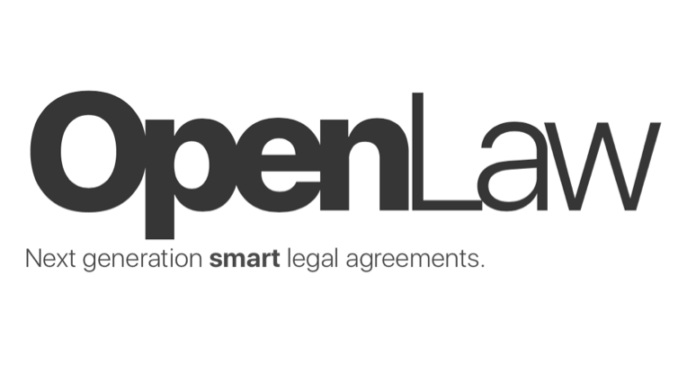
US and Swiss project, OpenLaw, is launching a new smart contract platform that will allow lawyers to make legally binding and self-executing agreements on the Ethereum blockchain.
The OpenLaw system allows lawyers to make use of a searchable database of templates on the platform (see video below) to then create customised contracts for specific transactional uses, e.g. a finance agreement, or a short-term employment contract.
The named parties can then confirm and activate the contract on the Ethereum blockchain using e-signatures and then have the contract self-execute its key agreements via the same blockchain.
The idea is that this will then provide a transparent and secure contracting system that always allows all permissioned parties to see what is happening without the need for a central authority to manage or control the execution of the contract. The use of templates and a very fast route to completion should also greatly reduce the need for laborious legal work.
In short, this creates a much more efficient means of contracting, which should also be secure and far cheaper than traditional manual and ‘off-chain’ methods. While the initial examples of contract templates are relatively straight-forward, there is no reason why more complex contracts could not also be formed and executed in this way. The limits are mainly those set by the users of the system, rather than the technology which appears to be highly flexible and adaptable.

The move comes at a time of growing interest and experimentation with smart contract technology. This month has seen European start-up, Agrello, launch its smart contract platform which will use its own currency, DELTA, to engage with contract template makers and sell its services.
Meanwhile, US-based smart contract pioneer, Clause, has just announced the formation of the Accord consortium involving several other tech companies and law firms, including US firm Cooley. The consortium also aims to make use of blockchain tech to enable the broader use of smart contracts, in this case via Hyperledger.
The OpenLaw project is the brainchild of US-based Aaron Wright and David Roon, and has been supported by ConsenSys, a Swiss blockchain venture production company.
Wright is an Associate Clinical Professor at Cardozo Law School and director of the school’s Blockchain Project. He is also chair of the Enterprise Ethereum Alliance’s Legal Working Group. Zurich-based Roon is also a specialist in the use of Ethereum and is the creator of Cubefriendly, an open data database engine.
As set out in their Medium post, the founders of the project believe that smart contracts will usher in potentially one of the biggest changes to the legal world for centuries.
‘The first written agreements appeared over 4,000 years ago in Mesopotamia. Yet, despite the pervasiveness of legal agreements , and despite serving as the cornerstone of the $437 billion US legal industry, the way contracts are created and generated has not undergone significant changes. While agreements are no longer memorialised in clay, lawyers have failed to take advantage of advances in computing to streamline and simplify their work,’ they say.
They go on to explain that everything from drawing up new contracts, to getting agreements and signatures from counter parties is a slow and inefficient exercise. Contracts sent around the world as attachments via email is also a messy and insecure system, they state. Moreover, once they are signed, most contracts end up badly stored on disparate data-bases and are not visible to all parties. They also need someone, usually a lawyer or someone in a company, to ‘activate’ the contract and make it do its work. This is also slow and can lead to human errors.
The smart contract system, especially when placed on a blockchain, removes many of these challenges. If you’d like to see a bit more about how the system works, check out the two videos below. The first covers the template to signature stage, the second covers self-execution of contracts via a blockchain. (Note: both videos were produced by OpenLaw.)
7 Trackbacks / Pingbacks
Comments are closed.